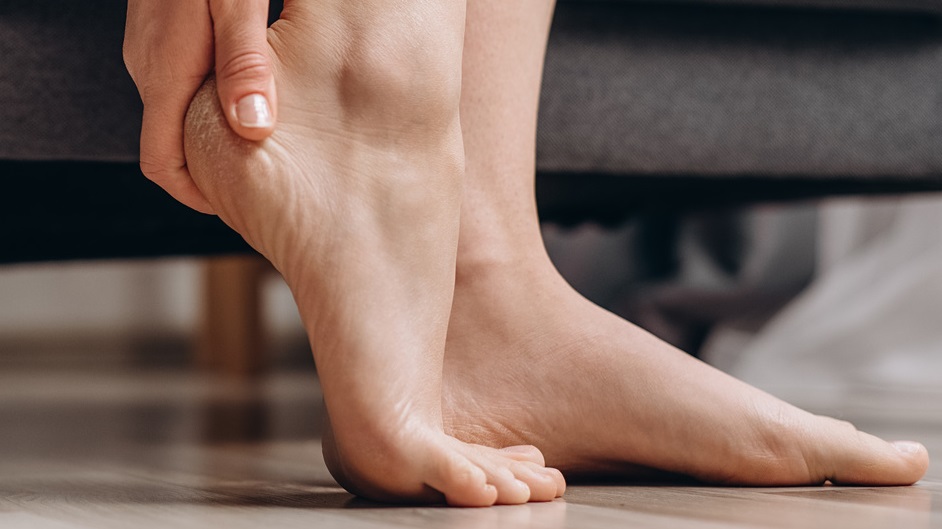The feet serve as the foundation for the entire body. It’s easy to overlook their critical role in posture, balance and alignment. Nevertheless, even minor foot issues can significantly affect posture over time. Understanding this connection helps emphasize proper proactive foot care.
How Foot Health Impacts Posture
The feet directly influence posture and spine positioning in motion or at rest. The anatomy of the feet distributes body weight across the soles and through the arches. When these structures weaken from overuse or conditions like plantar fasciitis, the distribution changes. This affects how the ankles, knees, hips, and spine align to compensate, gradually causing postural imbalances. Poor foot health also affects your actual balance and coordination. Issues like neuropathy mean the feet don’t reliably sense positioning. This impairs balance, increasing injury risks from falls and forcing poor posture habits to remain stable.
Common Foot Problems Affecting Posture
Various acute and chronic foot problems contribute to poor posture over time:
Plantar Fasciitis
Inflammation of thick tissue along the foot arch causes sharp heel and arch pain. Sufferers unconsciously shift weight to the balls of their feet looking for relief. This alters alignment upwards through the kinetic chain.
Arthritis

Joint inflammation and cartilage damage in the feet promote compensatory movement to avoid pain. Years of favoring one side impact symmetry and balance.
High Arches
Rigid, poorly shock-absorbing feet cause strain on surrounding structures, compensating for lack of support. Issues manifest as poor shock absorption and discomfort.
Flat Feet
Those lacking an arch collapse feet inward, called overpronation. This rotates legs and strains joints higher up looking for stability.
Bunions
Prominent, painful bumps on the big toe joint throw off natural foot mechanics and gait patterns. Changing how weight distributes across the foot affects balance and body positioning.
How Posture Problems Create Vicious Cycles
When foot health suffers, corresponding postural issues often follow. But the inverse occurs too; poor posture contributes to the development of foot problems over the long term. Slumping into rounded shoulders and forward head positioning increases weight and pressure on the feet. This hastens conditions like plantar fasciitis, joint inflammation and pronation issues in the feet forced to sustain more load. Postural imbalances also pervasively affect the kinetic chain – pelvis, hips, knees and ankles rotate out of optimal position in response. These gradual changes alter weight distribution and reinforce bad mechanics that manifest in the feet. It creates a vicious feedback cycle where poor foot health enables worsened posture. In turn, changes in posture place more strain and impact on diseased or damaged feet.
Improving Posture Through Proper Foot Care
Poor foot health often plays an under-appreciated role in postural decline. Podiatry services provided by those at clinics like Beyond Podiatry halt issues before they affect overall balance and body mechanics. Treatments like custom orthotics, arch supports and shoe inserts help realign and properly distribute mechanical forces across damaged feet. Dedicated stretching, icing and resting inflamed areas also reduces pain that unconsciously alters stance and walking patterns. Being proactive protects long-term posture by preventing acute foot problems from becoming chronic and permanent. Consistent foot care optimizes this foundation of the kinetic chain. In turn, proper alignment and positioning flows upwards through the ankles, knees and rest of the body.
Conclusion
Foot pain makes it hard to ignore developing issues. Don’t tough it out hoping problems resolve themselves. Even minor foot problems substantially impact posture, balance and comfort over time. Stay proactive with self-checks, stretch exercises, shoe replacements and podiatry care to halt damage before it spreads upwards. Keeping the feet healthy preserves overall posture and mobility.

